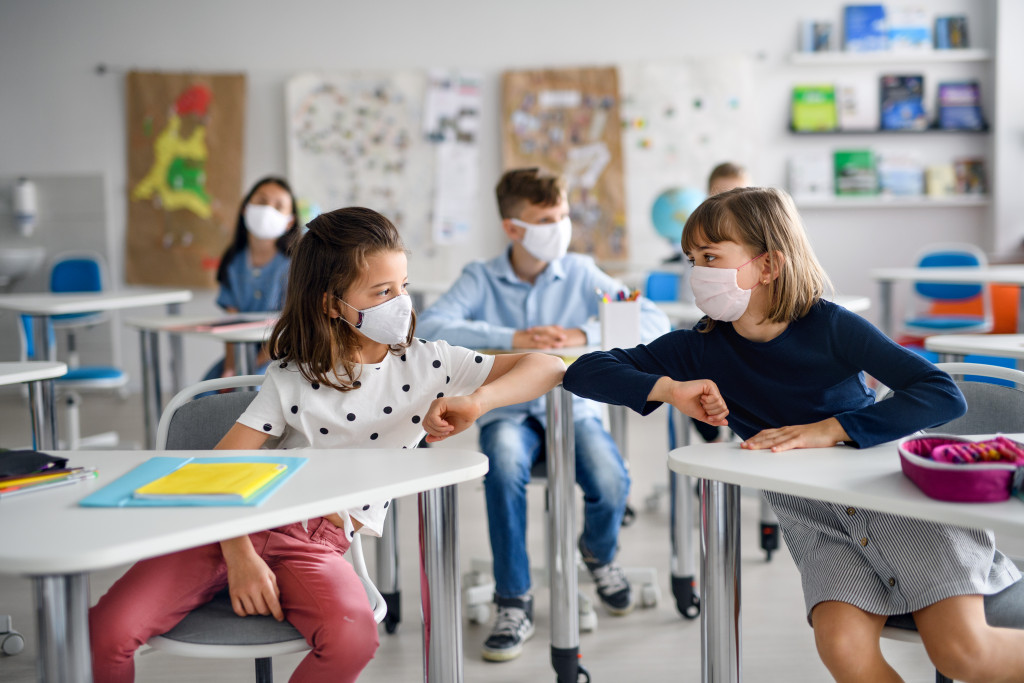- Preschool caregivers should have basic first aid knowledge and PALS certification to respond quickly and effectively in an emergency.
- Fire safety awareness and pediatric accident care are essential for reducing the risk of injury.
- Creating a safe and hygienic environment is vital to minimizing the risk of transmission and illnesses.
- Effective communication with parents is critical to meeting the children’s needs and preferences in their care.
Preschool caregivers are responsible for promoting healthy habits and ensuring the safety and well-being of young children in their care. This job requires a unique combination of knowledge, experience, and skills. Here are some essential health skills for preschool caregivers to help build a healthy foundation for their children.
Basic First Aid Knowledge
Accidents can happen anywhere, and preschool caregivers should be prepared to handle any minor injuries or illnesses while caring for young children. Basic first aid knowledge can help caregivers respond quickly and effectively in an emergency.
PALS Certification
PALS (Pediatric Advanced Life Support) certification is an advanced training program that focuses on life-saving interventions for critically ill or injured infants and children. While PALS certification may not be required for preschool caregivers, it can be valuable in emergencies, especially for those caring for children with medical conditions. So, getting courses for PALS certification can go a long way in providing quality care for the children in their care. This way, preschool caregivers can offer immediate medical interventions in emergencies.
Fire Safety Awareness
Preschool caregivers should be aware of fire safety protocols to reduce the fire risk in their home or daycare setting. They should know how to detect fire risks and proper evacuation plans. Additionally, understanding basic fire prevention protocols such as smoke detector installation, correct use of electrical outlets, and adequate storage of flammable materials can ensure safety in the preschool setting.
Pediatric Accident Care
Preschool caregivers have to be capable of providing basic accident care to young children. This includes knowing how to respond to minor cuts, scrapes, and bruises and more serious injuries such as broken bones. They should also be knowledgeable about using bandages, splints, and other first-aid equipment properly. These skills can help reduce the risk of further injury in an accident.
Creating a Safe and Hygienic Environment
Preschool caregivers are responsible for creating a safe and hygienic environment for their children. Especially in the current pandemic situation, it is essential to take extra precautionary measures. This proactive approach is vital to minimize the risk of transmission in the preschool setting. Here are some important considerations for creating a safe and healthy environment:
Proper Hygiene Practices
Preschool caregivers should encourage good hygiene practices, such as handwashing, to prevent the spread of germs and reduce the risk of illness. They should also ensure that children have access to clean drinking water and regularly sanitize toys, surfaces, and other items that children come into contact with.
Safe Play Areas
Preschool caregivers should ensure that play areas are free of hazards, such as sharp objects or loose cords. Routine inspection and regular maintenance can help to prevent any accidents.
They should also supervise children during playtime to prevent accidents. For instance, if a child is playing with balls, the caregiver should be nearby to ensure that the balls are not thrown too high or out of reach. This way, they can ensure the safety of every child in their care.
Effective Communication with Parents
Effective communication with parents is essential for preschool caregivers to ensure that they meet the children’s needs and preferences in their care. Without proper communication, caregivers may be unaware of the children’s underlying health conditions or allergies. This can increase the risk of illness and injury in the preschool setting. The following are some essential considerations for effective communication:
Consistent Updates
Preschool caregivers should regularly update parents about the child’s progress, including any concerns or issues that may arise. This can help parents feel more comfortable and confident about leaving their child in the caregiver’s care. With many devices and applications, caregivers can quickly share real-time updates with parents. Doing so can help foster a positive relationship with parents and create an environment of trust and transparency in the preschool setting.
Open Dialogue
Preschool caregivers should be open to feedback and suggestions from parents and be willing to address any parents’ concerns. This can help build trust and create a positive relationship between the caregiver and the parent. Thus, preschool caregivers need to maintain an open dialogue with parents and be willing to adjust their care practices as required.
By understanding the essential health skills required for preschool caregivers, they can ensure that the children in their care are safe and healthy. With knowledge, experience, and the right skills, preschool caregivers can provide quality care to young children and build a healthy foundation for their future.


